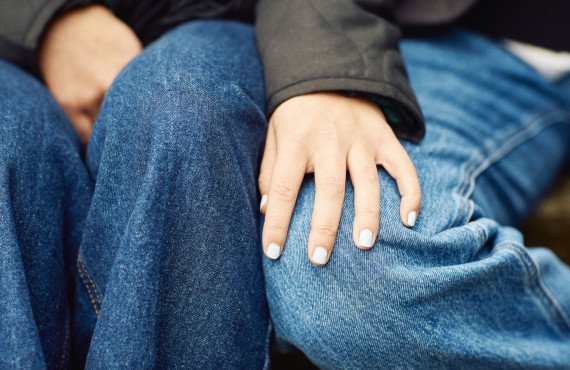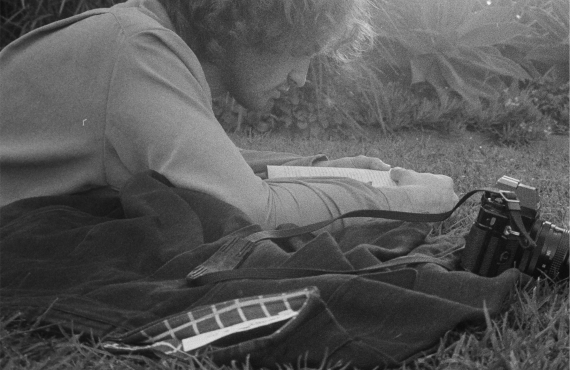Sticks and stones can break my bones
By Eleanor Butterworth
It turns out the childhood chant that 'sticks and stones can break my bones, but word can never hurt me' was wrong. While physical and sexual abuse tend to grab the headlines, emotional abuse is much less understood, even though it is more common and has just as big an impact on people's lives. In NZ, 55% of women experience emotional abuse in their lifetime compared to 35% who experience physical or sexual abuse.
So, what are we talking about when we say 'emotional abuse'?
Picture this, you are out with your partner at a party, everything is fine, then your partner starts teasing you about your outfit. At first you think it is a joke, but they just keep going, implying you are gross, making comments about other people they think look better than you, you feel embarrassed, do you look terrible? People are getting embarrassed for you, and you don’t want to make it worse for them, so you just wait it out.
In the car on the way home you raise it, but your partner acts genuinely surprised and says it wasn’t like that, you have just taken one little comment too personally. This happened last week too, the idea of going out together in public fills you with dread. Maybe next time you'll just stay home, it's not fair on others to ruin the party with your drama.
This a typical example of what emotional abuse looks like and the impact it has. Emotional abuse is a pattern of behaviour in a relationship that gradually eats away at a person's sense of worth, confidence and wellbeing, giving the abusive partner greater control over them. While physical violence may occur once, emotional abuse is generally many behaviours that stack up over time.
Common behaviours in an emotionally abusive relationship are:
- Name calling
- Guilt tripping
- Threatening or intimidating someone
- Humiliating them in front of friends and family
- Damaging their reputation
- Stalking
- Scaring them by doing things like driving dangerously.
All of which can have a profound effect on people without ever laying a finger on them.
Less well-known types of emotional abuse can include things like:
- Depriving someone of sleep
- Manipulating them or making them doubt their reality by denying saying or doing things that have happened (gaslighting)
- Telling people their partner is mentally unwell
- Punishing their partner, for example, not 'letting' them go out
- Keeping weapons on display as a threat, even if they don’t use them.
Those who have survived emotional abuse say that these behaviours individually can feel small, which makes it really hard to talk about them or the impact they are having. I mean, how do you tell a friend that your partner won't let you go to sleep without sounding ridiculous?
What makes it even harder to get help is that the short-term impacts of emotional abuse can include high levels of shame, self-doubt, depression, difficulty focusing and confusion about the situation. This is particularly true if their partner flips between being abusive in private, while seeming loving and caring in public.
But surely if no one is holding a gun to your head, you can just leave?
People can think emotional abuse is better than other types of violence, but in reality, the effects are just as serious as someone directly attacking your body. The overwhelming feelings of fear, stress and isolation caused by emotional abuse overwhelm your nervous system and can cause your heart to race, tension in your body, panic attacks, exhaustion from being too wired to sleep.
Long term emotional abuse can contribute to serious conditions such as anxiety, post-traumatic stress disorder, chronic pain, insomnia and addictions from using alcohol, drugs or other medications to cope.
Because emotional abuse can be a pattern of seemingly small behaviours, it is important to remember it is not the act but the impact that we need to look out for.
What are the signs should I look out for with emotional abuse?
The biggest thing to look out for in a friend who is experiencing emotional abuse is big changes in their personality or appearance.
- Someone outgoing who suddenly never wants to go out
- Confidence changing to self-doubt
- Big weight losses or gains
- Complete change in style
- Someone reliable now being flaking and cancelling all the time
- Changes in mental health, worsening depression, anxiety, self-harm or use of alcohol or drugs.
What can we do to support someone with being emotionally abused?
Think about the person driving home from the party that we met earlier, what do they need?
Reduce isolation: Isolation is a huge risk in abusive relationships, so stay in contact however you can. You may need to do this in a way that is safe, for example checking with your friend the best way and time to reach them.
Be a reality check: emotional abuse messes with people’s sense of reality; reinforce for your friend that they aren’t imagining it, their partner did say those things at the party, and it wasn’t ok.
Name what you are seeing without judgement: People already feel humiliated that their partner is treating them badly, so we need to not add our judgement to that. Saying things like, "I heard how X spoke to you, and I felt worried about you, are you ok?"
Be prepared with supports, but go at their pace: There are a list of supports on this page. Services like Women’s Refuge will work with any kind of abuse, there does not need to be physical violence. If you familiarise yourself with the supports available, you can help your friend to know what their options are when they are ready.
Look after yourself: It can be hard and frustrating to support someone grappling with emotional abuse. So look after yourself by: knowing you don’t have to save them, letting trusted others know about your concerns, and taking a break from support as you need to. Isolation occurs when it gets too hard for friends to keep standing by, so look after yourself so you can be there for the long haul.
Tagged
You may also like
-
 Read
ReadDo you like your partner as a person, or do you like the lifestyle they offer you?
Advice, Relationships














